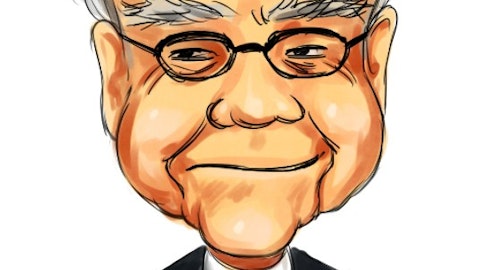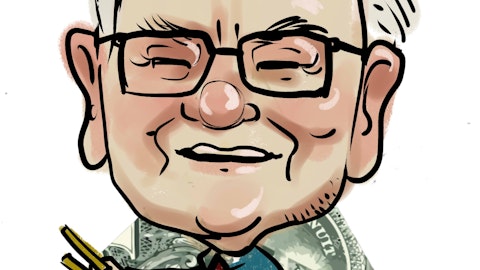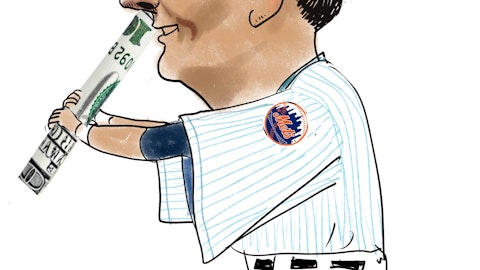With Vikram Pandit gone, we believe now is a good time to buy Citigroup Inc (NYSE:C). The CEO change caught investors off guard, but we believe that it has been one of the driving factors in helping push the stock up 10% this week. Citi reported 3Q EPS of $1.06, compared to estimates of $0.96. Admittedly, we do have our concerns over the company’s valuation now that the stock is trading around $38.50. Yet, the company is still down over 90% since its peek in 2007, versus the Financial Select Sector ETF, which has lost 55% over this time.
Although fund interest is not as positive as we would like, there is still solid interest from a number of hedge fund managers, but no top-level names worth a true vote of confidence. Bill Miller has a modest interest, and the top funds as of 2Q included Eton Park Capital and Jabre Capital Partners.
The CEO change will likely not reinvent Citi’s strategy, but pivot operations to unlock shareholder value. The bank did not pass its comprehensive capital analysis and review by the Fed earlier this year, which would have allowed the company to return capital to shareholders with buybacks. The bank is now working overtime to ensure it can return capital to shareholders next year. The new CEO may be a move to help the bank appear more favorable in its next review. The company has made improvements in its Basel III tier one ratio, up to 8.6% as of the end of 3Q. This is above JPMorgan and Bank of America’s 3Q Basel III ratios of 8.4% and 8.3%, respectively.
Key Citi competitors include Bank of America Corp (NYSE:BAC), JPMorgan Chase & Co. (NYSE:JPM), Morgan Stanley (NYSE:MS) and Wells Fargo & Company (NYSE:WFC). Bank of America, a company we believe you should be selling, still faces pressure from mortgage repurchase requests. The bank saw repurchase demand increase another 12% for 3Q. Bank of America has also seen its stock bounce back the most year-to-date, up over 70%. The company’s low P/B ratio of 0.4, lowest among its peers, makes it appear attractive, but we would like to see the company shake its litigation charges before considering it a value play.
JPMorgan pays the highest dividend of the bank stocks listed, at 2.8%. The company is up over 3% this week after posting a 6% revenue rise on the back of strong commercial lending and mortgage banking. The company has shown positive growth in other areas besides trading, including mortgage banking due to refinancings. We see Morgan Stanley as a solid undervalued bank—see our thoughts on the stock. There is upside here; even though it is already up 20% year to date, Morgan Stanley has one of the lowest P/B ratios among top banks at 0.5. Morgan is transitioning its revenue streams toward a stable wealth management business, while becoming less reliant on the capital-intensive fixed income trading business.
There are mixed feelings on Wells Fargo. The company gets the majority of its revenues from its mortgage banking business, which has helped boost the company earlier this year with a vast number of refinancing agreements, but insider sentiment has predominately been negative. Warren Buffett remains an owner of over 400 million shares and Ken Fisher and D.E. Shaw are also both top Wells Fargo owners. The company is down this week even though EPS beat estimates, posting 3Q EPS of $0.88 versus estimates of $0.87. Interestingly, revenues missed on mortgage banking and net interest income. After the news, Wells saw many top investment firms reaffirm their price targets in the $37-$39 range, as the company currently trades around $34.50 a share. The economy’s low interest environment will continue to compress the bank’s net interest margin and limit its upside in the interim.
We see Citi as a positive growth and turnaround story, not without risk. The company trades at a 2.6 beta, making it very susceptible to large market swings, and dependent on broader market reactions. The complexity of Citi’s operations may open the door for possible spinoffs of operations to unlock value for shareholders. As well, Citi has been lagging in U.S. credit card and retail businesses, leaving room for potential growth. The bank is expected to grow EPS at an average of 12% over the next five years, while the industry average is only 2%.






